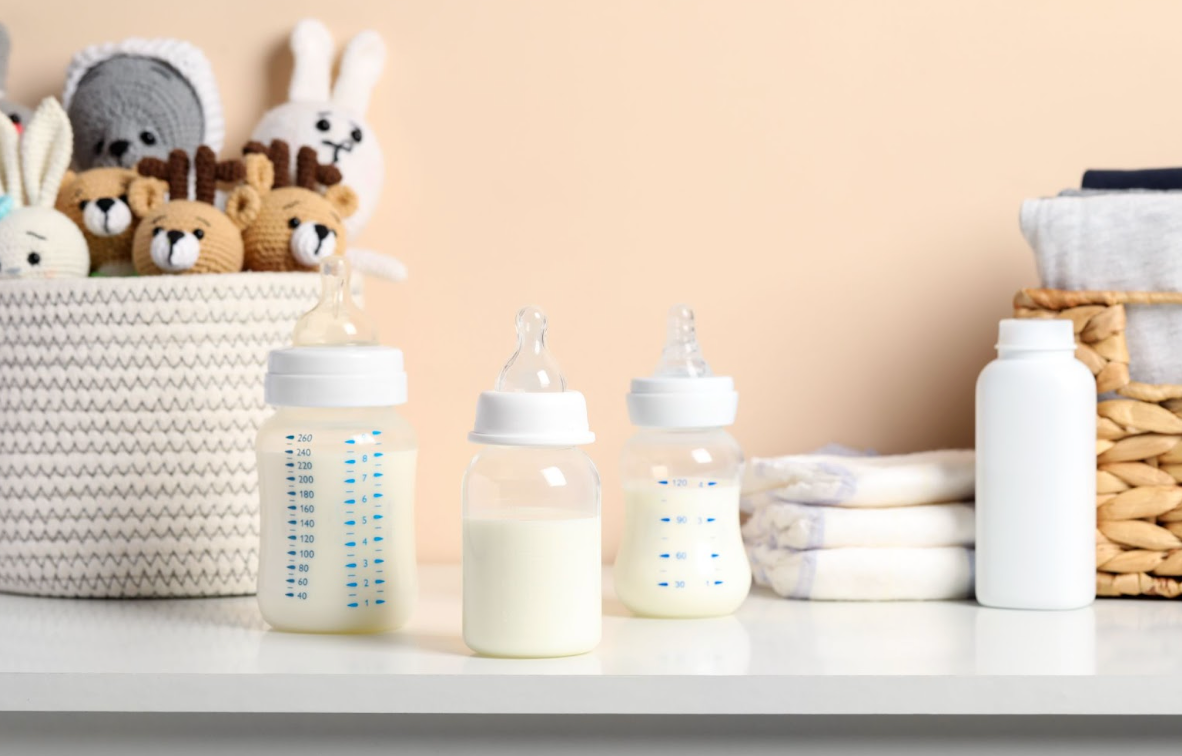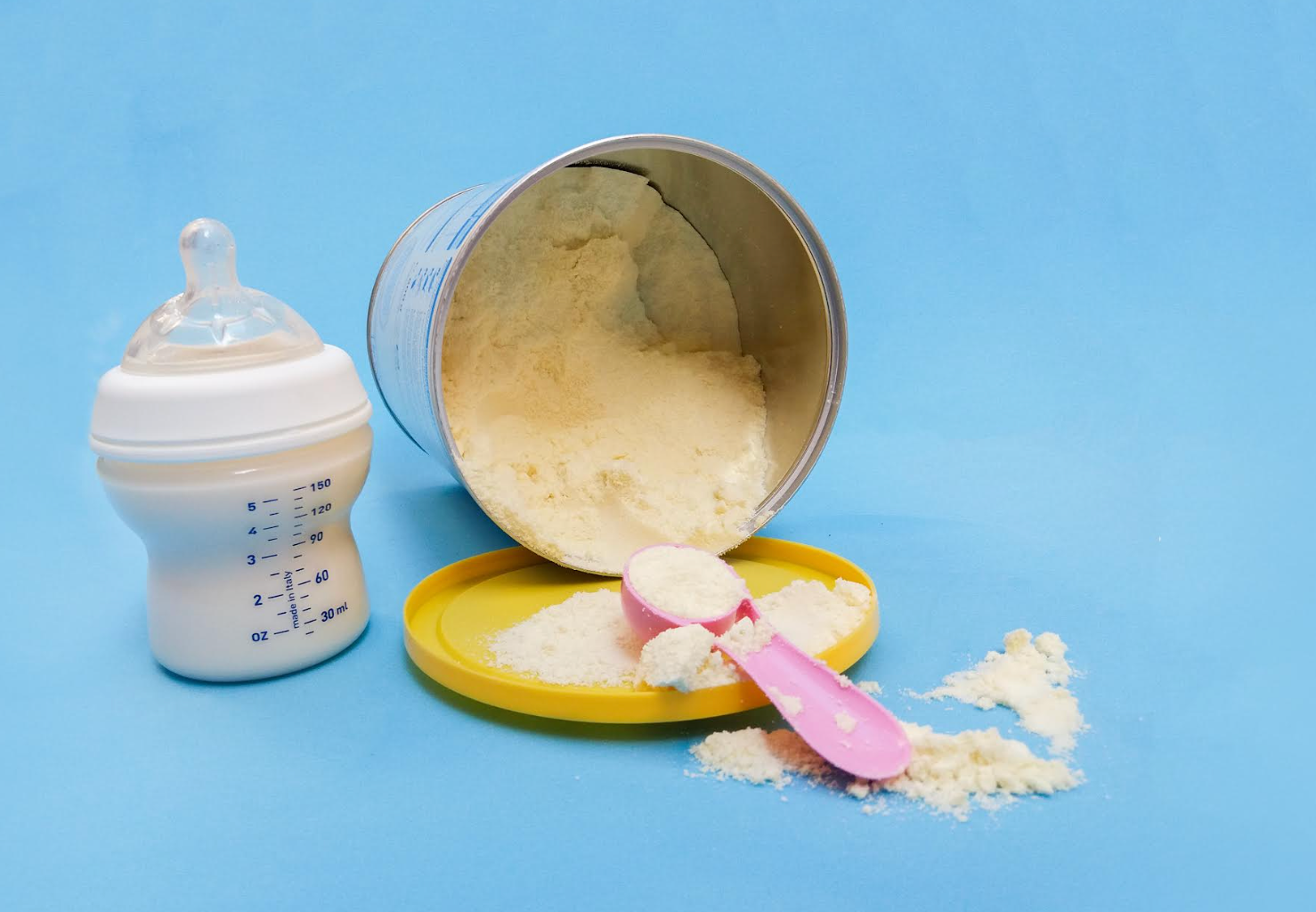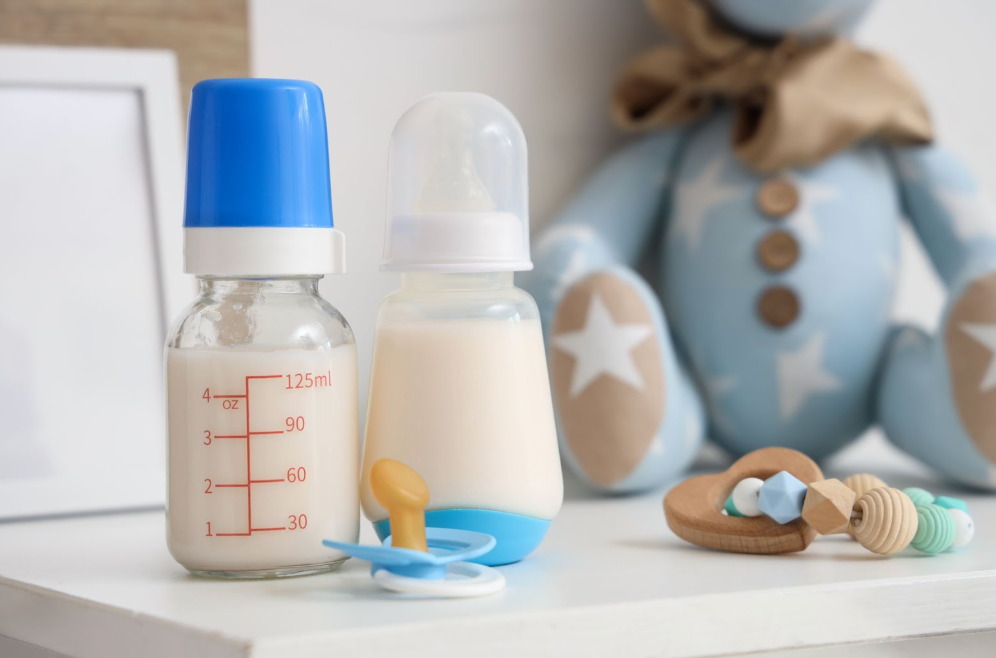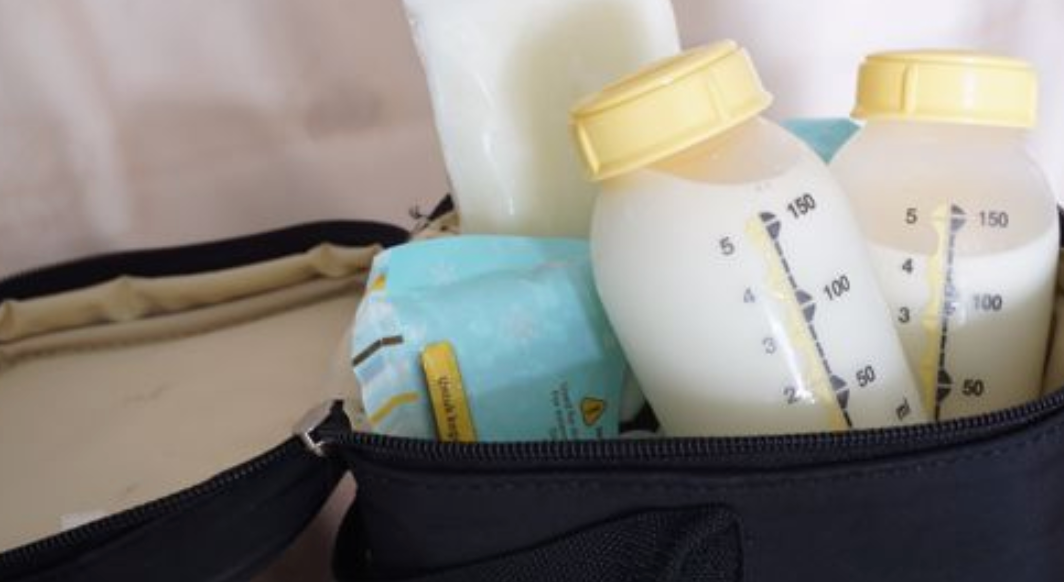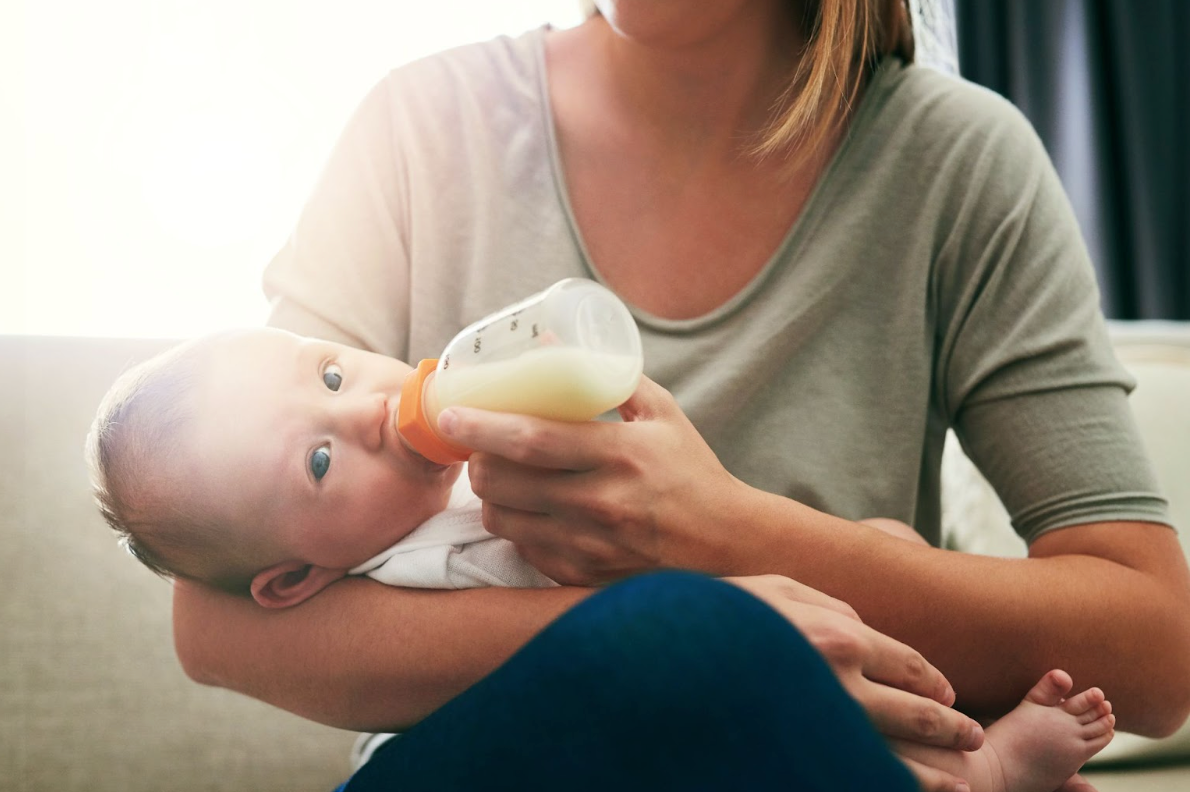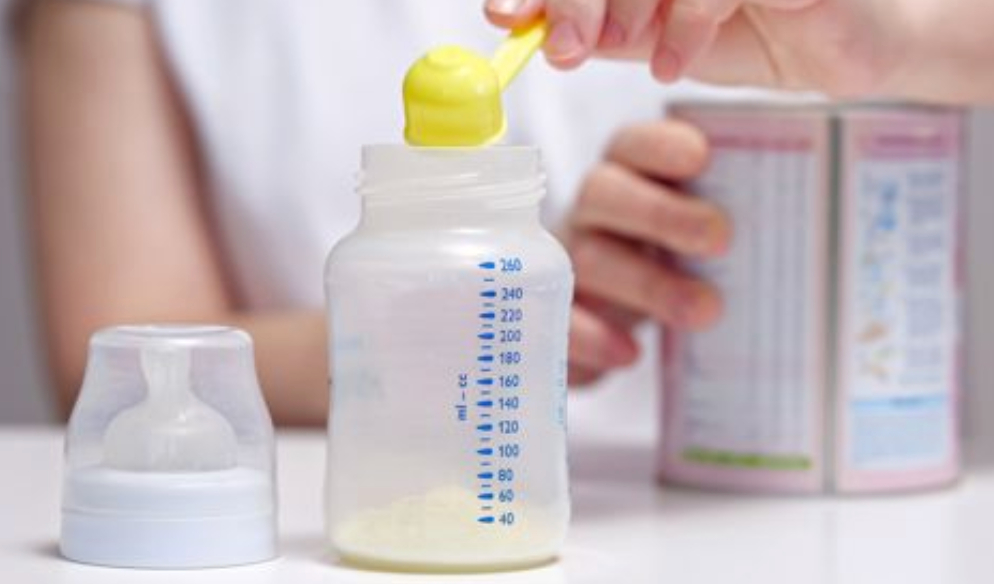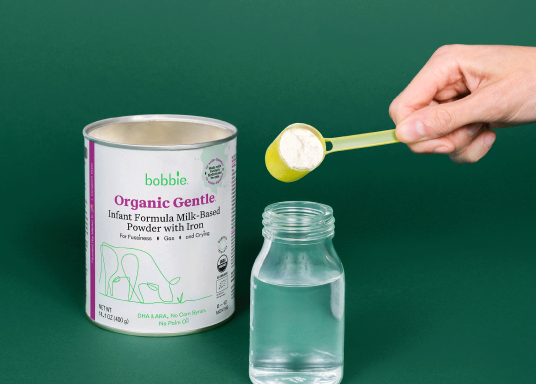Published June 9, 2025

Baby Formula Shortage in 2025: What Parents Need to Know
If you’re wondering whether the baby formula shortage is still impacting families in 2025, you’re not alone. After the nationwide shortage in 2022, many parents remain wary of empty shelves and backordered formulas. While conditions have improved, challenges persist — but so do solutions!
At Bobbie, we believe no parent should ever have to panic about how they’re going to feed their baby. That’s why we’ve taken everything we’ve learned and built a supply model you can count on — through thick and thin.
Is There Still a Baby Formula Shortage in 2025?
In short, the market is better, but it’s not perfect. While we’re no longer seeing the coast-to-coast bare shelves of 2022, occasional formula shortages, shipping delays and supply hiccups still pop up, and, understandably, parents are still feeling anxious.
Why Are There Still Formula Shortages?
Supply chains remain sensitive to factors such as:
-
Unexpected factory shutdowns
-
Natural disasters (hello, hurricane and tornado seasons)
-
Shifting import regulations
-
Supply chain challenges
And let’s not forget: international trade isn’t exactly smooth sailing. Ongoing concerns about tariffs and global supply disruptions continue to affect the availability of imported and specialty formulas.
A Quick Look Back: What Caused the 2022 Baby Formula Shortage?
To move forward, it helps to understand what went wrong. Here’s a snapshot of how the 2022 formula crisis unfolded:
-
Early 2020–2021: The COVID-19 pandemic disrupts global supply chains — including ingredients for powdered infant formula.
-
Feb 2022: Abbott Nutrition recalls Similac, Alimentum and EleCare; its Sturgis, Michigan, plant shuts down for months.
-
Mid-2022: Over 43% of formula products are out of stock nationwide.
-
Summer 2022: The government launches Operation Fly Formula to import emergency formulas from abroad.
-
2023–2025: Gradual recovery — but lingering issues remain.
Why Did It Happen?
-
COVID-19 supply chain issues: Ingredient shortages and global shipping delays hit hard.
-
Abbott recall and shutdown: Safety violations forced a major plant to close, and the supply gap was massive.
-
Market concentration: A few formula giants dominate the market, so there’s no wiggle room when one stumbles.
-
Strict import rules: Even safe, high-quality formulas from abroad couldn’t make it to shelves fast enough.


Your go-to resource for all things new baby.
Sign up to get the scoop on feeding, sleep, poop, and so much more.
By singing up for email, you are to receive marketing emails from Bobbie and can manage your email preferences or unsubscribe at anytime
How the Baby Formula Shortage Affects Families
The formula shortage wasn’t just a fleeting headline — it had lasting impacts on the physical, emotional and financial well-being of countless families across the U.S. For many, it was a daily crisis with no easy solution.
The Toll on Parents and Infants
Stress and Anxiety
For parents, the search for formula became all-consuming. Many spent hours driving from store to store, calling pharmacies or refreshing online stock notifications, all while caring for an infant. The fear of not being able to feed your baby isn’t just stressful, it’s deeply distressing. That sense of panic stayed with many parents long after shelves were restocked.
Rising Costs
As formula supplies tightened, prices climbed. By 2024, the cost of infant formula had increased by as much as 18%. For families already managing tight budgets, this unexpected rise added financial strain — sometimes forcing impossible trade-offs between essentials like food, rent and childcare.
Widening Access Gaps
The shortage hit vulnerable families the hardest. Parents relying on the WIC program, those caring for medically fragile infants who required specialty formulas, and caregivers in rural or underserved areas often had the fewest options and the greatest difficulty finding what they needed. Many couldn’t simply "drive to the next store" — and alternatives weren’t always covered by assistance programs or available at all.
What to Do If You Can’t Find Formula Right Now
National shortages may be behind us, but localized outages can still leave parents scrambling. If you’re in a pinch, here’s what to do:
Safe Feeding Alternatives
-
Switch to a formula with similar ingredients and talk to your pediatrician about safe substitutions.
-
Ask your doctor if they have sample cans (many offices keep a stash!).
-
Look into donor milk or milk banks for babies with specific dietary needs.
Create a Baby Formula Emergency Plan
-
Keep 1–2 weeks of formula at home (no hoarding, just a smart buffer).
-
Track your inventory using an app.
-
Identify a backup brand that works for your baby.
-
Get to know your local parenting groups and support networks.
See our favorite apps for parents and newborns to keep calm and organized.
What Not to Do
-
Don’t water down formula — it’s dangerous and can lead to serious health problems.
-
Don’t try homemade recipes as they often lack vital nutrients and can easily be contaminated when assembled in a non-sterile home kitchen.
-
Don’t switch to cow’s milk or toddler formula before your baby turns one unless your pediatrician says it’s okay.
Talk to Your Pediatrician
Here are a few smart questions to ask if you need to switch brands:
-
“Is this formula nutritionally equivalent to our usual one?”
-
“Is this safe for my baby’s allergy or digestion needs?”
-
“What signs should I watch for if my baby doesn’t tolerate the change?”
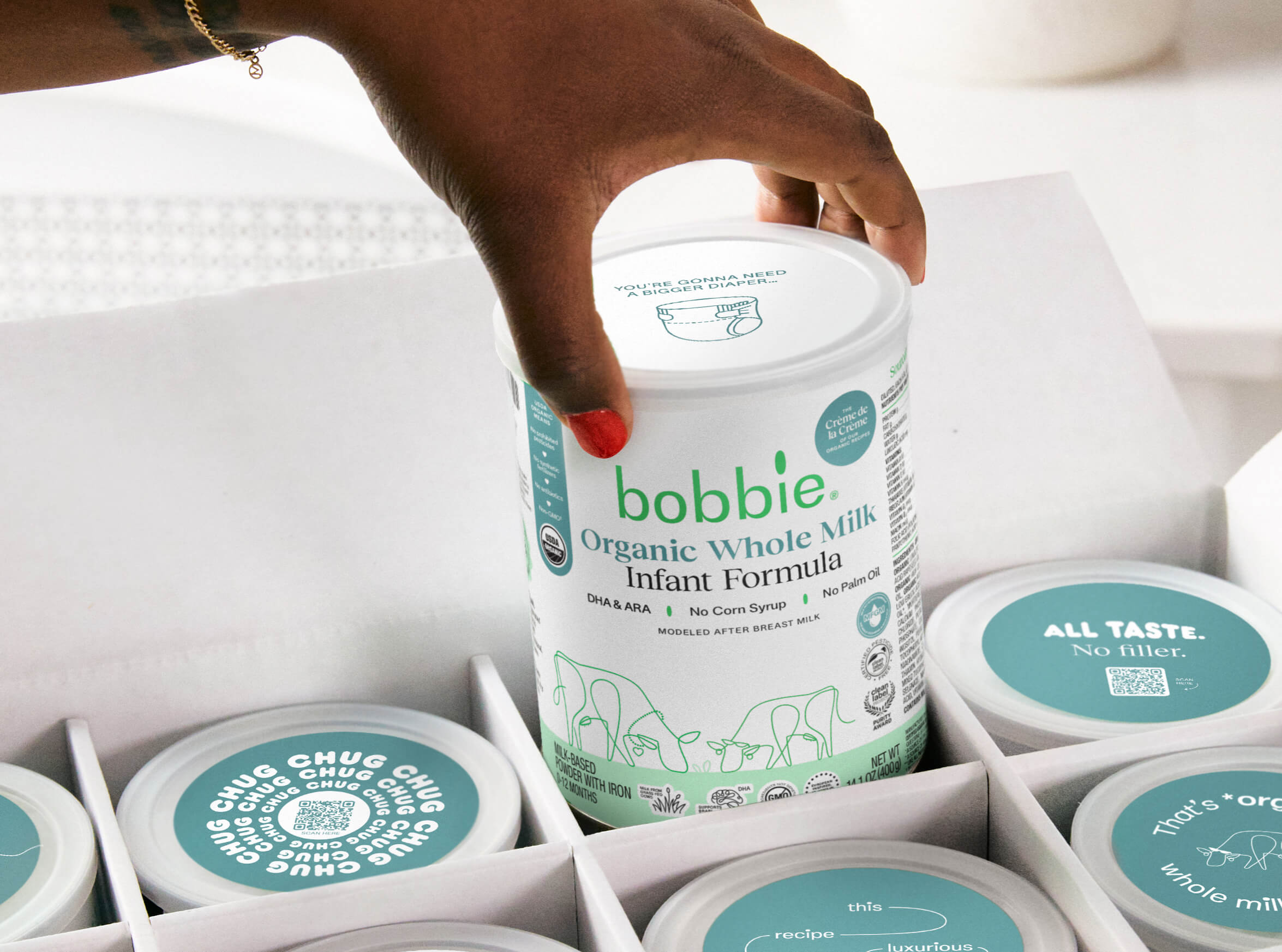
Shop Bobbie Baby Formula
Bobbie infant formulas are clean, EU-style infant formulas that meets all FDA requirements. They are complete nutrition, milk-based powder, modeled after breast milk and is easy on tummies. They are all non-GMO and do not have corn syrup, palm oil, or maltodextrin. Shop Bobbie today!

How Bobbie Is Solving the Formula Supply Problem
Let’s be real — feeding your baby should never depend on whether your local store got a shipment that day. At Bobbie, we’re taking the uncertainty out of infant feeding with a bold solution that parents can count on.
The Bobbie Guarantee: You’re Covered for the Whole Year
When you subscribe to Bobbie, you’re backed by a 100% year-long supply guarantee. That means enough formula for your baby, delivered reliably month after month with no panic and no surprises.
Factory to Front Door Means No Shelves and No Shortages
By shipping directly from our U.S. factory to your doorstep, Bobbie skips the retail rollercoaster entirely. You’ll always know where your formula is coming from — and when it’s arriving.
Built Strong in the USA
Many formula shortages happen when overseas production stalls or imports get delayed. Bobbie is made right here in the United States, so we’re less vulnerable to global disruptions. Our supply chain is built for resilience, because your baby’s nutrition shouldn’t be at the mercy of foreign tariffs or shipping bottlenecks.
Certified Organic and Parent-Approved
Bobbie meets the highest safety standards:
-
USDA Organic
-
Pediatrician-developed and parent-tested
The Subscription That Actually Helps
Bobbie’s subscription is more than just convenience. It’s a safety net for parents who never want to stress about their formula supply again.
The perks of a Bobbie formula subscription include:
-
10% savings
-
Free shipping
-
Shortage-free guarantee
-
Inflation-proof pricing
-
Peace of mind, month after month
Rebuilding Resilience for Families Everywhere
We’re not just here to sell formula. We’re here to rebuild a better, stronger formula system — one that works for families, not against them.
Bobbie’s supply model has been recognized by logistics and business experts as a standout example of resilience and innovation in action. Read the articles below to learn more:
Formula for Success – Inbound Logistics
Surging Demand Nearly Broke Their Business — What They Learned – Inc.
We learned from the 2022 shortage. We listened to parents. And now we’re leading the way toward a smarter, more secure infant feeding future.
Can a Formula Shortage Happen Again?
It’s always possible, but the likelihood of another crisis like we saw in 2022 is significantly lower today.
Why We’re Optimistic
A lot has changed for the better — both in the formula industry and in government oversight.
-
Improved oversight: The FDA has strengthened inspection protocols and made it easier to import high-quality formula when needed.
-
Smarter supply chains: Many brands, including Bobbie, now rely on more resilient supply models, better forecasting and U.S.-based manufacturing.
-
Tech-driven tracking: Real-time monitoring and responsive logistics help reduce the impact of disruptions and ensure quicker recovery when they happen.
-
Less reliance on external supply chains: Manufacturing here at home helps minimize risks tied to international shipping or unexpected global events.
What Parents Can Do
While major shortages are unlikely, small steps can help you feel more prepared:
-
Stay informed: Your pediatrician and organizations like the Centers for Disease Control and Prevention offer reliable, up-to-date guidance.
-
Keep a small buffer: A modest backup supply can prevent last-minute stress.
-
Choose trusted brands: Look for those with a proven record of safety, transparency and consistent availability.
-
Report unethical pricing: If you spot price gouging or unfair practices, report them to local authorities.
-
Track industry updates: Awareness of changes in the formula space can help you make more informed choices.
-
Consider a formula subscription: Don’t rely on uncertain retail inventory if you don’t have to.
A Closer Look: Feeding Equity Matters
The 2022 shortage revealed much more than gaps in inventory — it exposed deeper inequities in how infant feeding support is distributed in the U.S.
Nearly half of all infant formula is purchased through Women, Infants and Children (WIC). When shelves go empty, WIC families are often the first to feel the impact — and may face greater barriers to finding alternative sources.
Access to formula should never depend on where a family lives or how much they earn. But for many, limited transportation, fewer store options and restricted income make it harder to find and afford formula during a crisis.
Policymakers and advocacy organizations are now working to address those gaps by:
-
Diversifying the formula market to reduce reliance on a handful of manufacturers
-
Expanding access to breastfeeding and lactation support
-
Making donor milk more available for families who need it
-
Strengthening safety and pricing regulations to protect parents and infants
Bobbie continues to advocate for long-term improvements — because every parent deserves peace of mind when it comes to feeding their baby.
Stay Calm, Stay Informed and Stay Stocked
Here’s the good news: the worst of the formula shortage is (mostly) behind us. But smart, empowered parents are still preparing for the what-ifs. That means having a plan, choosing brands you trust and staying connected to helpful resources.
At Bobbie, we’re proud to support parents with an organic, safe and stress-free way to feed your baby. No gimmicks. No guessing. Just good formula and a rock-solid delivery system.
Shop Bobbie – Because feeding your baby should never be a guessing game
The content on this site is for informational purposes only and not intended to be a substitute for professional medical advice, diagnosis or treatment. Discuss any health or feeding concerns with your infant’s pediatrician. Never disregard professional medical advice or delay it based on the content on this page.






